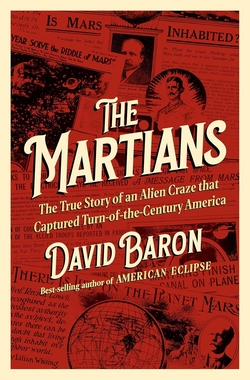I’ve run into a fascinating discussion on American Enterprise Online titled “Look Heavenward?” — it’s a collection of articles whose description on the magazine’s table of contents, “The pros and cons of spending more on manned space exploration,” is wildly insufficient to describe its range. The most interesting of the pieces here consists of three thought-provoking conversations with space and astronomy pioneers. Bill Kauffman interviews comet hunter David Levy; David Isaac talks to Mars Society president Robert Zubrin; and Frederick Turner (University of Texas at Dallas poet and sometime interstellar theorist), interviews Freeman Dyson. I’ll run just a few snippets, but at some point be sure to read the whole piece here.
From the Zubrin interview, discussing terraforming and how humans may adapt to other worlds:
ZUBRIN: I can elaborate by analogy. Human beings are not native to the Earth. We’re native to East Africa. We’re tropical animals. We have long, thin arms with no fur on them. No human could survive a single winter night here in Colorado without technology.
But then around 50,000 years ago, people started migrating from Africa to Europe and Asia, right into the teeth of the Ice Age. To survive in the winter you had to engage in ice fishing or big-game hunting, both of which are very complex activities. Humanity transformed itself radically from this East African being to homo technologicus, the creature who can cope with all sorts of novel environments through technological creation. That is the basis on which we became a global species.
We go to places like Mars, which are perhaps comparatively hostile to us in the way that Europe was to early tropical man. But we figure out how to address that. Ultimately it leads to the creation of a human story that is richer and vaster in its possibilities. Human societies on thousands of planets orbiting thousands of stars in this region of the galaxy. Innumerable social forms and vast arrays of technologies that are as yet unconceived. A profusion of artistic creation and literatures. So yes, a new type of human civilization. That’s the stakes.
Mars is the critical test that will determine whether we become a spacefaring species or whether we continue to be limited to Earth. That’s why humans-to-Mars is the most important thing that our society will do when viewed from the future. It’s going to be risky when people go to Mars for the first time. But nothing great in human history has ever been accomplished without courage.
And here’s Freeman Dyson, asked whether science is incompatible with religion:
DYSON: For me personally, religion is a willingness to accept mystery. Most of the important questions are mysteries which we shall never solve, and the purpose and meaning of life is just one of those. Religion in that sense is a way of life, and it has a great deal of meaning.
TAE: At the age of eight, I had a realization of the beauty and the incredible elaboration of nature. I’ve never really gotten over that feeling that the whole of life is miraculous, from beginning to end. This piece of biochemistry actually has a soul. It seems to me that the world means something.
DYSON: I absolutely agree with that. Whatever you learn from science doesn’t contradict that. In fact, it only makes it more miraculous.
TAE: There are differences among scientists, aren’t there? A lot of physicists, even if they don’t particularly believe in God themselves, almost find it necessary to postulate God in order to be able to do physics: Einstein talking about God playing dice, Hawking talking about what’s in God’s mind, Rutherford saying that the universe is like a gigantic thought more than like a gigantic machine, and so on. Biologists, on the other hand, in order to be able to do evolutionary biology, feel the need to take it as a principle that there is no creator.
DYSON: Right. Biologists are much more hostile to religion than physicists, and I think needlessly so. They create this opposition to science by being so dogmatic. It certainly is true that if you are a physicist, you are familiar with the fact that things are not machines. They don’t follow predestined tracks. All the time we are making random choices. It’s just a totally different way of looking at things from these ball and stick models that the biologists use.
TAE: So you’re not a determinist?
DYSON: You can’t be. Physics tells you quite clearly that randomness is built into nature.
Centauri Dreams note: Those unfamiliar with interviewer Frederick Turner should seek out his “Worlds Without Ends,” which ran in Reason back in June of 1996 (Vol. 28, Issue 2). It’s a remarkable article about the rationale for space exploration that avoids cliches of any sort and advances a startling theory about the real economics of interstellar voyaging. I’ll run a quote or two from Turner’s piece on Saturday.
And finally, from Bill Kauffman’s interview with David Levy, this little gem about really seeing what you’re looking at:
I went to an observatory just east of here, on Mt. Graham, and I spoke to a graduate student who was using this enormous telescope. I said, “What are you observing?” She said, “I’m observing this variable star,” and she gave me its number. I said, “Do you know what constellation it’s in?” She didn’t. I said oh, that’s in the Taurus Milky Way! But she didn’t know the magic. Bart Bok, one of the greatest astronomers of the twentieth century, said, “When you are in an observatory at three o’clock in the morning, stop your photograph. Stop your photometer. Walk away from the telescope. Walk down the stairs. Walk out the front door. Now walk 20 paces, no more, no less. Then stop–and look up at the stars–just to make sure you are making bloody sense.”

